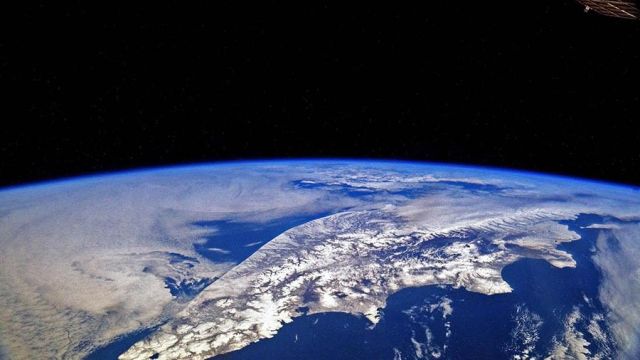Washington. November 16. INTERFAX - Russia shot down the Soviet satellite Kosmos-1408 during a test of an anti-satellite weapon, the US Space Command reports.
"On November 15, 2021 Moscow time, Russia tested a satellite interception rocket with direct launch into orbit. The rocket hit the Russian satellite Kosmos-1408, which led to the formation of debris in low Earth orbit," the command said in a statement.
According to his estimate, about 1.5 thousand fragments were formed, which can be monitored. "Probably, hundreds of thousands of smaller fragments are also formed in orbit (which cannot be tracked - IF)," the US military believes.
The BBC, for its part, notes that Kosmos-1408 was launched in 1982. It was intended for electronic intelligence and has not worked for many years.
The head of the space command, General James Dickinson, said that such a test, according to the United States, indicates that Russia is indifferent to "security, stability and long-term rational use of space by all countries." He explained that, according to the estimates of the US Space Command, because of these fragments, spacecraft, in particular, will have to maneuver more often to avoid collisions.
"Russia's test of a satellite interception missile with direct launch into orbit clearly shows that this country continues to work on anti-satellite systems. Such systems undermine strategic stability and are a threat to all countries," Dickinson believes.
The US State Department previously stated that the test of the Russian anti-satellite weapons, which poses a threat to the ISS, took place earlier on Monday.
"Earlier today, the Russian Federation irresponsibly tested a satellite interception missile with direct launch into orbit," State Department spokesman Ned Price said at a briefing on Monday.
He noted that, according to the American side, the test of the Russian Federation provided for the destruction of "one of its own satellites."
Earlier, Price stressed that the Russian test of anti-satellite weapons posed a threat to the crew of the International Space Station (ISS).
He added that the garbage formed as a result of this test contains 1.5 thousand objects and hundreds of thousands of smaller ones.
Pentagon spokesman John Kirby, in turn, also expressed concern about the Russian test of anti-satellite weapons.
"The biggest concern is the debris that is currently in space and may pose a threat, including to the International Space Station," Kirby said at a briefing.

